Tamara Cofman Wittes testifies before the House Foreign Affairs Committee, Subcommittee on the Middle East, North Africa, and International Terrorism on the state of the U.S.-Egypt relationship and the need for a reset in U.S. policy on this relationship, which rests on outdated assumptions. Read the full testimony below or watch it live.
INTRODUCTION
Chairman Deutch, Ranking Member Wilson, thank you for convening this hearing and for the invitation to appear before you today. I am delighted to offer my views together with three respected colleagues. I’d like to request that my full statement be entered into the record.
Let me emphasize, as always, that I represent only myself before you today; the Brookings Institution does not take any institutional positions on policy issues.
I have spent years working on the U.S.-Egypt relationship, both in and out of government. And I have never seen the relationship as unbalanced and ineffective for American interests as it is at this moment. This relationship is long overdue for a reset.
EGYPT’S CHALLENGES, AND OUR OWN
Egypt continues to face profound challenges to its stability and security, both domestically and internationally.
- It is fighting an ongoing insurgency in the Sinai against the Islamic State’s local affiliate.
- Egypt’s military intervention in the Libyan civil war on behalf of Khalifa Hiftar has not brought the desired results, and has undermined rather than strengthened Egypt’s ability to control its Western border.
- Egypt’s dispute with Ethiopia over the Grand Ethiopian Renaissance Dam—and more broadly water scarcity and water management—present an existential threat to population and livelihoods in a country of over 100 million.
- Egypt’s President Abdel Fattah el-Sisi, as you have heard, is engaged in unprecedented domestic repression—Egypt is now the third worst jailer of journalists in the world, and is estimated to hold tens of thousands of political prisoners, including American citizens.
- Egypt suffers from continued economic stagnation and weak government services, especially health services—a problem compounded by COVID. The government’s early response to COVID-related health care challenges was to arrest doctors who complained about the lack of preparedness.
Historically, from the time of the Egypt-Israel Peace Treaty negotiated at Camp David until 2011, the United States enjoyed a strong partnership with Egypt’s leaders: Anwar Sadat and then, for thirty years, Hosni Mubarak. That partnership was rooted in shared strategic and security goals for the region, including Arab-Israeli peace, resisting Soviet influence in the region, preventing any single regional state from dominating the others, and combating Islamist terrorism.
That U.S.-Egypt relationship was beginning to fray even before Mubarak fell in February 2011; the Arab-Israeli peace process faltered, Mubarak and his clique in the military and ruling party were increasingly fixated on retaining power, while the American government was seeking to reduce its significant military deployments in the Middle East war on terrorism, and embraced the imperative of political and economic reform in the Arab world.
That old U.S.-Egypt relationship is gone, and it will not be restored in the foreseeable future. The region has undergone profound change, and is still enmeshed in a fierce competition for influence and power. America’s global focus is shifting, and so is our relative position in the Middle East. Some common threats remain, including Islamist terrorism and insurgency like the Islamic State affiliate in Sinai. Although the United States and Egypt still do have shared interests, we no longer share a vision for the region or a common project to hold our relationship together.
AMERICA’S DILEMMA
Even in the face of a relationship that has today as many differences as areas of agreement, many parts of the United States government continue to view the nation of Egypt as “too big to fail.” There is good reason for this view. Egyptians represent a full one-fifth of the entire Arab world. An economic or political disruption in Egypt would, as it did in 2011, have profound effects across the region. Egypt has the largest Arab army, and retains diplomatic influence in North Africa, in the African Union, and in international institutions. And the American partnership with Egypt has played an important logistical role for US military plans and operations over the last several decades: as a supply base, a strategic passageway through the Suez Canal, and through overflights. Egypt is thus understood by the Pentagon as an important backstop for ongoing operations in Iraq and Afghanistan as well as contingencies in the Gulf. This military logistics backstop is valuable, but as my colleague Michael O’Hanlon has pointed out, it is neither essential nor irreplaceable.
Here is the dilemma facing American policy: regardless of how much Egypt’s stability still matters to the region and to US interests, one lesson of the last ten years or so in the US-Egyptian relationship is that Washington does not have sufficient capacity, within the level of resources it is willing to commit, to shape the fundamental policy choices by the Egyptian government on which the country’s political and economic stability will stand or fall. Unless President Abdel Fattah el-Sisi makes dramatic changes to his highly coercive, exclusionary approach to governance, economics, and politics, it is difficult to imagine Egypt’s system having a decent chance of meeting the needs and aspirations of its large, young population or becoming again a stable and reliable partner for American foreign policy in the region.
The Trump Administration’s approach to the relationship with Egypt does not grapple with this challenge. It combines bizarre public endorsements of Sisi’s domestic brutality with occasional private attempts to win policy changes, usually unsuccessful. But even setting aside President Trump’s affinity for the man he called “my favorite dictator,” and looking across the last six or seven years, the United States government seems simply to continue trying to sustain the Egypt it has, because it can’t see how to get closer to the Egypt it wants to have. In so doing, American policy toward Egypt has moved from a comprehensive partnership into, increasingly, unbounded support for Egypt’s military and security apparatus while they usurp more and more power inside Egypt and expand their repression and abuses of the rights of ordinary Egyptians.
Consider the trend in U.S. assistance to Egypt over the last three decades. In Fiscal Year 1990, the United States provided Egypt with about $2.2 billion in military assistance and about $1.9 billion in economic assistance, for a ratio of just over 1:1. In Fiscal Year 2018, the United States provided Egypt with about $1 billion in military aid and about $230 million in economic aid, for a ratio of well over 4:1. Dr. Dunne has described to you the myriad ways in which the Egyptian military has steadily taken over greater control of politics, economics, and the media. The trajectory of our support to Egypt appears to bolster and reward this military takeover of state and society, even as the military-backed government of President Sisi behaves in ways that are often at odds with U.S. interests. Having sat in the policy rooms where these figures were discussed, I don’t believe that this was the intention of American policy – but it is, unquestioningly, the result.
So it is long past time for American officials in Congress and the executive branch to reevaluate the US-Egyptian partnership in the clear light of day, and to restructure how we approach this partnership. This reevaluation should include consideration of how American and Egyptian interests have changed and diverged in the last ten years, what American investments in Egypt are and aren’t producing constructive results in the current environment, what the risks are for the United States in the current situation, and what are the limits of American influence in this troubled partnership. To what extent can American policy really help to bring about the kinds of policy changes in Cairo that would enable Egypt to emerge as a stable, successful regional power or a reliable partner for American regional goals?
SISI’S EGYPT IS NOT AN EFFECTIVE PARTNER
To that end, let me review some evident changes in the value of the partnership with Egypt to American interests.
Hosni Mubarak’s Egypt was a strong regional partner with Washington in sustaining a status quo in the region that benefited both countries. Hosni Mubarak’s Egypt had diplomatic capacity and influence both in the Arab world and in Africa, which he was willing to deploy on behalf of shared US-Egyptian interests like Arab-Israeli peace and constraining troublemakers like Hafez al-Assad and Muammar Ghadafi.
Abdel Fattah el-Sisi’s Egypt, rather than driving Arab policies like Mubarak did, is following the lead of Saudi Arabia and the United Arab Emirates, two states that bankrolled his rise to power, and on which Egypt remains dependent for central bank deposits and investments. At the same time, Sisi is bent on fighting a regional war for power and influence against his perceived adversaries: Islamist political movements, Qatar, and Turkey—and most of all, anyone inside Egypt who dares to dissent from Sisi’s views.
Sisi’s fixation on regime security makes him a stingy and unreliable actor in regional affairs, uninterested in cooperation to stabilize a region in turmoil. To the contrary, his coercive approaches both domestically and regionally are exacerbating instability and security problems, not just for the region but for Europe and the United States. Sisi’s sponsorship of Khalifa Hiftar’s war against the internationally-recognized government of Libya has included providing arms and ammunition to Hiftar in violation of the UN arms embargo, as well as reportedly allowing the UAE to use an Egyptian base in the Western desert as a base for its air support to Hiftar’s forces. Egypt’s policies have prolonged and exacerbated the Libyan civil war, giving greater space to terror groups like Al Qaeda of the Islamic Maghreb, displacing thousands of people and bolstering the numbers of migrants and refugees seeking to flee from Libya into Europe.
Historically, the US-Egyptian relationship was a force multiplier in American efforts to advance Israeli-Palestinian peace. Egypt hosted summits, helped tamp down crises, and worked with the United States to bring about key compromises, including the Oslo II agreement in 1995 that delegated authority from Israel to the Palestinian Authority in areas across the West Bank and Gaza. Sisi does not have the capacity to play this traditional Egyptian role very effectively either. His ruthless approach to Hamas, a product of his fixation on destroying the Egyptian Muslim Brotherhood from which Hamas emerged, has led him to what scholar Michael Wahid Hanna has called a “disingenuous” approach to diplomacy between Israel and Hamas. He is now enmeshed in a bloody conflict next door in Libya, a major diplomatic standoff with Ethiopia, and a seemingly endless insurgency in Sinai; he doesn’t have the bandwidth or motivation to spend on brokering Israeli-Palestinian agreements.
Egypt under Sisi has also proved to be an ineffective, and perhaps even counterproductive, counterterrorism partner. Sisi has been slow to embrace the lessons of counterinsurgency that the United States learned through painful experience in Afghanistan and Iraq. Instead, much of Sisi’s counterinsurgency campaign in Sinai has involved scorched-earth tactics that included bulldozing villages and displacing thousands of residents. The Egyptian military continues to suffer regular losses in Sinai, but they have largely managed to keep the insurgents from bringing the fight to Egypt’s cities in the mainland. On border control, one of the priorities for American military aid, Egypt remains reliant on Israeli support. More broadly, Sisi’s intense repression and the large numbers of political prisoners—estimated in the tens of thousands—raise real concerns about whether the Egyptian government’s approach is actually cultivating extremism more than it is combating it. This concern, I’m told, is shared by administration officials and communicated to the Egyptians, as it was by the previous administration, but without much impact.
Egypt is committed to a nuclear-free Middle East, and was for a time a helpful partner in US-led multilateral efforts to impose constraints on Iran’s nuclear program. But Sisi’s Egypt maintains diplomatic relations and open communications with the Assad regime in Damascus as well as with Tehran. And Egypt withdrew from the Trump Administration’s Middle East Strategic Alliance in April 2019; although it is formally part of the Saudi-led anti-Houthi coalition in Yemen, it has no troops engaged in the fight.
In recent years, a number of other actions by the Egyptian government have created tensions with Washington. These include Egyptian relations with North Korea, Chinese investment in Egypt, discrimination and violence against the Coptic Christian community and Egypt’s detention of American citizens. And of course, as you heard earlier, President Sisi has escalated his persecution of civil society and human rights activists.
STRICT AID CONDITIONALITY HAS SOME EFFECT
As American economic aid to Egypt has declined and these concerns have increased, both Congress and the Administration have successfully used targeted conditionality on security assistance to induce limited, concrete changes in Egyptian policy. Congressional conditions proved a useful tool for the Obama and Trump administrations to press Sisi to address the criminal case against American NGO workers, but the Trump Administration let up that pressure once a group of most U.S. citizens was acquitted on appeal. The criminal case continues against a host of Egypt’s most distinguished human rights and NGO activists, and Egypt’s new NGO law is no improvement.
The main lesson from these recent efforts at conditioning military aid is that focused, sustained pressure, with clear demands consistently communicated, can have some impact on Egyptian actions. This limited, focused conditionality will not turn Sisi into Gorbachev or Egypt into a liberal democracy, but it can mitigate and reverse some specific concerns and injustices. I agree with my colleagues Dr. Dunne and Ms. Hawthorne that this conditionality should be renewed, and the national security waivers should be removed to ensure Congressional will is enforced.
INVEST IN THE EGYPTIAN PEOPLE
Old, received wisdom about the value of the US-Egyptian partnership dominates perceptions in both the executive branch and here on Capitol Hill, but it needs to be reviewed and updated in light of the profound changes in Egypt and in the region. I believe that the United States can work constructively with Egypt’s government on mutual interests, in a focused and conditioned manner. At the same time, the United States can and should use economic and other civilian assistance to help the Egyptian people through a truly challenging period and to prepare for challenges already on their doorstep, especially water scarcity driven by climate change.
For example, the Trump Admin has now put a pause on $130 million in bilateral security assistance to Ethiopia to pressure it into making a deal with Egypt and Sudan on how to handle Nile River water flow and releases from its new reservoir in drought years. Bullying and threats are not likely to dissuade Ethiopia from continuing with the dam project, which is financed by domestic bonds and Chinese loans. The United States would do better to focus new assistance to Egypt on helping that country prepare for the realities of climate change and water scarcity, which are already visibly affecting Egyptian agriculture and livelihoods. Egypt desperately needs a comprehensive strategy for water conservation, reclamation, and desalination—and the United States has expertise to offer.
But American officials must not be blind to the nature of this regime or this partnership, must guard U.S. engagement accordingly to protect American interests, and must act to prevent the United States from becoming further implicated in Sisi’s repression and regional adventurism. A more sensible and sustainable relationship would recognize that there’s room for cooperation in some areas, but there is sharp disagreement in others. What’s needed is clarity of intentions, clear conditions for American support and assistance, and clear U.S. red lines that are enforced. Discarding illusions and wishful thinking can produce a limited partnership with some concrete and meaningful benefits.
Most of all, the United States must get off its current trajectory, whereby the uncritical embrace of the Trump Administration combined with the overwhelming proportion of military assistance makes the United States increasingly appear to Egyptians as the bankroller and backer of a military-backed autocrat who is relentlessly repressing and abusing his people. We know that will come back to bite us. Egyptians represent one out of every five Arabs and will remain an economic, cultural, entrepreneurial and educational force across the region. It is and will remain in American interests to see the people of Egypt realize their aspirations for security, dignity, and freedom; it is these aspirations in which we should invest.
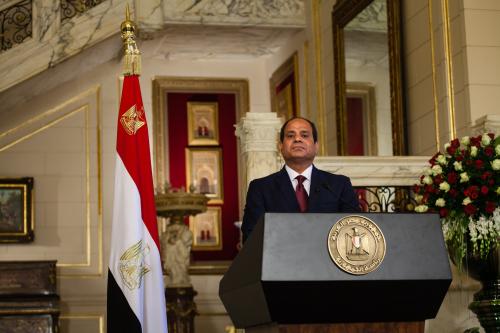
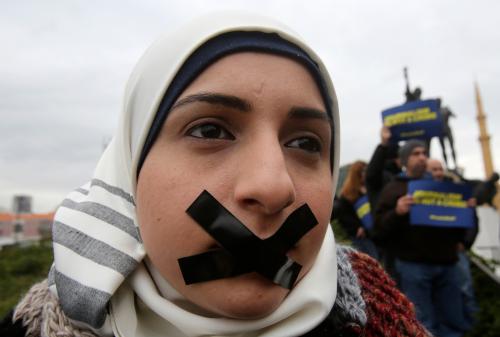
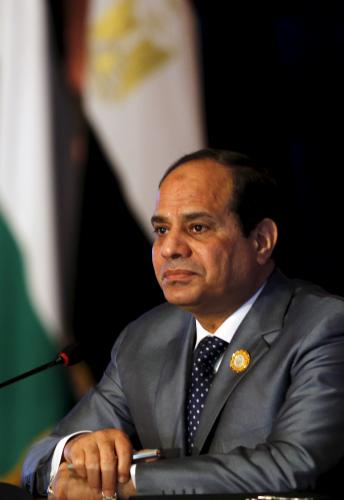
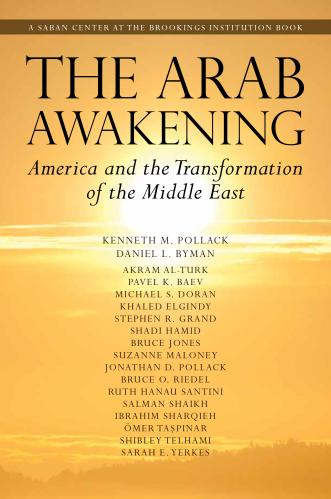
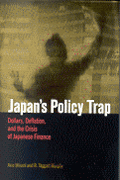
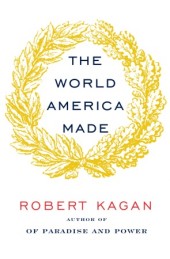

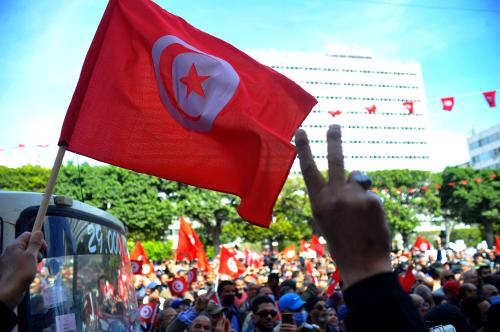

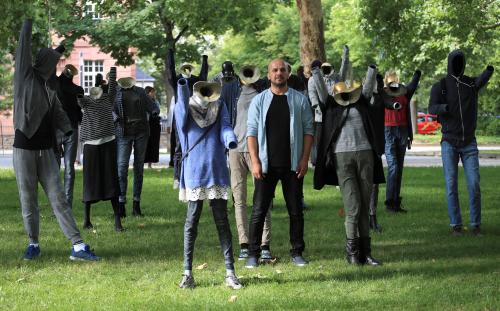
Commentary
TestimonyEgypt: Trends, politics, and human rights
September 9, 2020